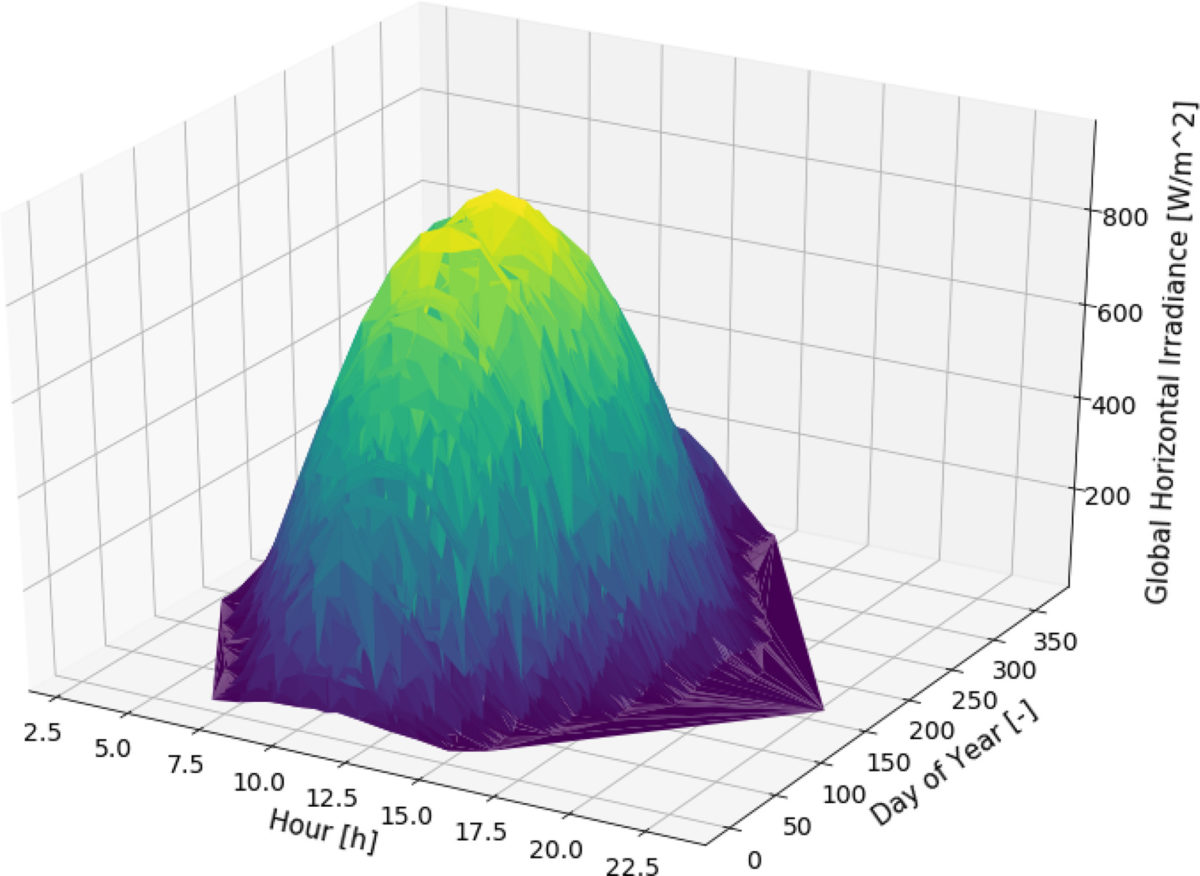Scientists at the Delft University of Technology in the Netherlands have developed a machine-learning (ML) technique to predict power yields in rooftop PV system. They claim it can predict electricity generation levels one hour ahead.
They described their findings in “Individual yield nowcasting for residential PV systems,” which was recently published in Solar Energy. The researchers said the new approach can forecast the individual power output of large fleets of PV systems.
Their novel method is based on a single XGBoost algorithm, which is a decision-tree ensemble, open-access algorithm that uses a gradient-boosting framework.
“Since XGBoost is made of a combination of decision trees, the importance of each feature is relatively straightforward to compute,” the researchers said. “A decision tree makes predictions by splitting decisions into branches.”
They applied the algorithm to a fleet of 1,102 residential PV systems in the Netherlands and Belgium. They considered global horizontal irradiance (GHI), cloud coverage, wind speed, precipitation, and ambient temperature, by relying on data provided by the Royal Netherlands Meteorological Institute.
Popular content
Their methodology also considers PV system size, age, panel types, latitude, longitude, panel inclination, orientation, decay-per-year inverter efficiency, and operational cell temperatures.
“Descriptive parameters consist of day of year and historical yield from 24, 48, 72, 96 and 120 h before,” the academics said, noting that Dutch startup Solar Monkey provided all of the system data. “Data needs to be properly prepared for the machine learning model in order to obtain the best results.”
Given an average PV system size of 4.4 kW, the algorithm achieved a mean absolute error (MAE) of 0.877 kWh and a mean absolute percentage error (MAPE) of 23% for hourly data aggregated to daily values.
“XGBoost predictions for individual PV systems are on average two times better than currently used commercial software,” the academics said. “Despite the presented issues, XGBoost provides two fold improvement with respect to the commercially available analytical model.”
This content is protected by copyright and may not be reused. If you want to cooperate with us and would like to reuse some of our content, please contact: editors@pv-magazine.com.



3 comments
By submitting this form you agree to pv magazine using your data for the purposes of publishing your comment.
Your personal data will only be disclosed or otherwise transmitted to third parties for the purposes of spam filtering or if this is necessary for technical maintenance of the website. Any other transfer to third parties will not take place unless this is justified on the basis of applicable data protection regulations or if pv magazine is legally obliged to do so.
You may revoke this consent at any time with effect for the future, in which case your personal data will be deleted immediately. Otherwise, your data will be deleted if pv magazine has processed your request or the purpose of data storage is fulfilled.
Further information on data privacy can be found in our Data Protection Policy.